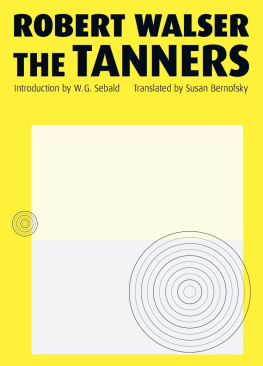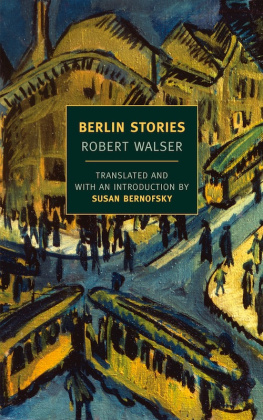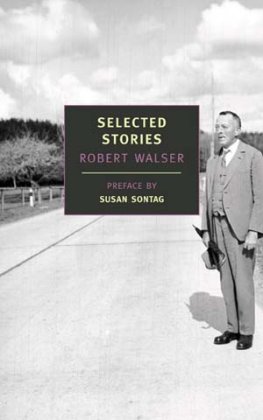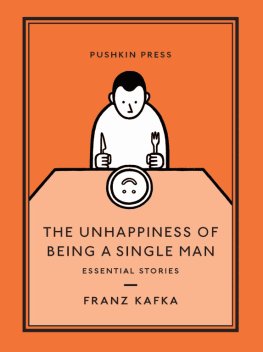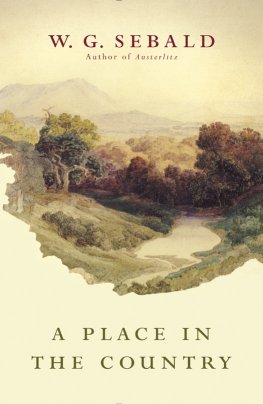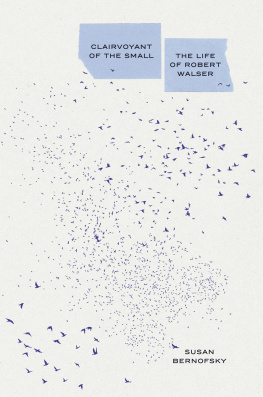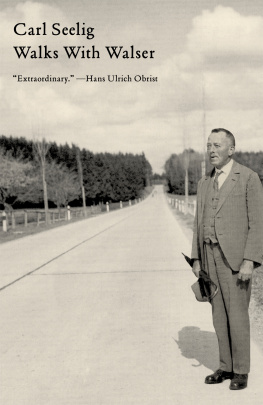ROBERT WALSER was born in Berne, Switzerland in 1878. In a remarkably creative period between 1905 and 1917 he wrote three novels, The Tanner Family, The Assistant and Jakob von Gunten, and the short stories collected in The Walk. Diagnosed as schizophrenic, he entered hospital in 1933 in Herisau, Appenzell, where he remained until his death in 1956.
Praise for Robert Walser
If he had hundred thousand readers, the world would be a better place Hermann Hesse
Kleist in Thun and Helblings Story show him at his dazzling best J.M. Coetzee
A clairvoyant of the smallWalser has been my constant companion W. G. Sebald
An essential writer of our time Elias Canetti
Last heir of the great romantics Roberto Calasso
I think it was Herman Hesse who said that if you can stomach Robert Walsers prose, you cant help but fall in love with it, and I fell in love with it pretty quickly. Hes guileless but not stupid, an admiring observer of the inconsequential Nicholas Lezard, Guardian
A writer of considerable wit, talent and originalityto be read slowly and savored Ronald de Feo, New York Times
One of the greatest German-language writers of the twentieth century Juan Jos Saer
The dreamy confectionary snowflake of German language fictionthe single most underrated writer of the 20th century [and] a sentence artist of the highest magnitude some of the best short prose written in any language Benjamin Weismann, Los Angeles Times
From his very first works Walsers style and vision were unmistakably his ownThe totality of his work has already outlasted much that seemed great and important in his time Times Literary Supplement
Walser was one of those individuals who stand at a slight angle to the worldhis art was a beautifully sane challenge to the systematic assault on the subjective and quotidian that was already grinding away when he entered the madhouse. In an age that found it possible to diagnose the inner life as a sticky mass of tics and neuroses, Walser became a polite but stubborn champion of an everyday life in which psyche may play a central role, but pathology is not necessarily a given John Burnside
[T]he gallantry, the frolicsomeness, the imaginativeness or the sheer assiduousness of Walsers writing [] remains the readers overriding impression. [] Walsers great qualities are displayed in an ironic, a rearguard or, most precisely, a Pyrrhic way, not least because he mistrusts an aesthetic of victory. [Walser writes with] a Buster Keaton-like, indomitably sad cheerfulness London Review of Books
The magnificently humble. The enormously small. The meaningfully ridiculous. Robert Walsers work often reads like a dazzling answer to the question, How immense can modesty be? If Emily Dickinson made cathedrals of em dashes and capital letters and the angle of winter light, Walser accomplishes the feat with, well, ladies feet and trousers, and little emotive words like joy, uncapitalized Rivka Galchen, Harpers Magazine
To his eye, everything is equal; to his heart, everything is fresh and astonishing; to his mind, everything presents a pleasant puzzle. Diversion is his principal direction, whim his master, the serendipitous the substance of his daily routine William H. Gass
Walsers writing cunningly masquerades irony with self-effacement, and vice-versaa language of hallucinatory virtuosity The Rumpus
Walsers work is the closest thing to the truth about the human condition the complexity of not knowing and wishing to know, the tragedy and humor of trying to find out what it is were doing while we are alive. These are struggles that go on forever Maira Kalman
The Walk
ROBERT WALSER
Translated by Christopher Middleton and others
with a foreword by Susan Sontag

A complete catalogue record for this book can be obtained from the British Library on request
The right of Robert Walser to be identified as the author of this work has been asserted in accordance with the Copyright, Designs and Patents Act 1988
Introduction Copyright 1982 Susan Sontag
Translation copyright 1960, 1964, 1968, 1976, 1977, 1979, 1981, 1982 by Farrar, Straus and Giroux, Inc. Kleist in Thun, The Walk, Frau Wilke and The Monkey from The Walk and other stories by Robert Walser, translation copyright John Calder (Publishers) Ltd., 1957.
Reprinted by permission of John Calder Ltd., London.
Translated from the German, Werkausgabe, copyright Verlag Helmut Kossodo, Geneva and Hamburg, 1966, 1967, 1968, 1971, 1972, 1975. License granted by permission of the owner of the rights, Carl Seelig-Stiftung, Zurich, Switzerland.
All rights reserved. No part of this book may be reproduced, stored in a retrieval system or transmitted in any form or by any means, electronic, mechanical, photocopying, recording or otherwise, without the prior permission of the publisher.
First published in Great Britain by Carcanet Press, Manchester, in 1982
First published in this edition in 2013 by Serpents Tail
First published in 1992 by Serpents Tail,
an imprint of Profile Books Ltd
3A Exmouth House
Pine Street
London EC1R 0JH
website: www.serpentstail.com
ISBN 978 1 84668 958 1
eISBN 978 1 84765 505 9
Designed and typeset by MacGuru Ltd
info@macguru.org.uk
Printed and bound in Great Britain by CPI Group (UK) Ltd, Croydon CRO 4YY
1 3 5 7 9 10 8 6 4 2

Contents
by Susan Sontag
Foreword: Walsers Voice
Robert Walser is one of the important German-language writers of this century a major writer, both for his four novels that have survived (my favourite is the third, written in 1908, Jakob von Gunten) and for his short prose, where the musicality and free fall of his writing are less impeded by plot This selection of Walsers short prose was made (and mostly translated) by the admirable Christopher Middleton, who has laboured for years to make Walser known to English-language readers, and draws from work done between 1907 and 1929.
Anyone seeking to bring Walser to a public that has yet to discover him has at hand a whole arsenal of glorious comparisons. A Paul Klee in prose as delicate, as sly, as haunted. A cross between Stevie Smith and Beckett: a good-humoured, sweet Beckett. And, as literatures present inevitably remakes its past, so we cannot help but see Walser as the missing link between Kleist and Kafka, who admired him greatly. (At the time, it was more likely to be Kafka who was seen through the prism of Walser. Robert Musil, another admirer among Walsers contemporaries, when he first read Kafka pronounced the latter a peculiar case of the Walser type.) I get a similar rush of pleasure from Walsers single-voiced short prose as I do from Leopardis dialogues and playlets, that great writers triumphant short prose form. And the variety of mental weather in Walsers stories and sketches, their elegance and their unpredictable lengths remind me of the free, first-person forms that abound in classical Japanese literature: pillow book, poetic diary, essays in idleness. But any true lover of Walser will want to disregard the net of comparisons that one can throw over his work.
In long as in short prose Walser is a miniaturist, promulgating the claims of the anti-heroic, the limited, the humble, the small as if in response to his acute feeling for the interminable. Walsers life illustrates the restlessness of one kind of depressive temperament: he had the depressives fascination with stasis, and with the way time distends, is consumed; and spent much of his life obsessively turning time into space: his walks. His work plays with the depressives appalled vision of endlessness: it is all voice musing, conversing, rambling, running on. The important is redeemed as a species of the unimportant, wisdom as a kind of shy, valiant loquacity.
Next page

